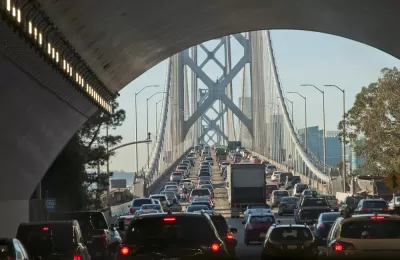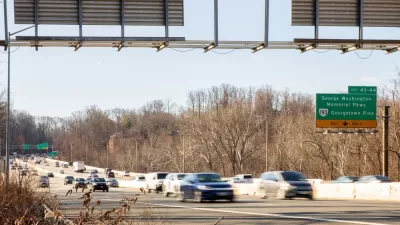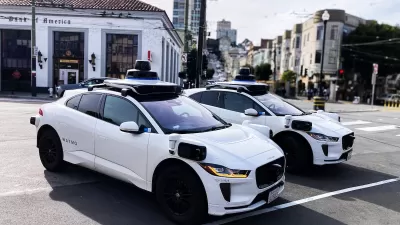Joe Cortright argues for a new approach to the discussion about the country's dependence on automobiles: talk about responsibility, not morals.

Joe Cortight suggests that there is a problem with the framework by which transit boosters, cyclists, planners, environmentalists, and safety advocates talk about cars:
…the problem is not that cars (or the people who drive them) are evil, but that we use them too much, and in dangerous ways. And that’s because we’ve put in place incentives and infrastructure that encourage, or even require, us to do so.
Faced with the question of how to reduce the negative impacts of driving, by reducing driving, the advocates listed above are locked in a political battle that is often contentious.
"Bitter and acrimonious flamewars between people who are convinced that one side or the other is trying to run us off the road will surely be unproductive," writes Cortright. Thus, he suggests a new way to argue in favor of reforms:
This isn’t about creating a “disincentive for car use,” but, as a matter of fairness and practicality, dropping what have essentially been subsidies for financially and socially expensive and dangerous behavior.
FULL STORY: Let’s not demonize driving—just stop subsidizing it

Maui's Vacation Rental Debate Turns Ugly
Verbal attacks, misinformation campaigns and fistfights plague a high-stakes debate to convert thousands of vacation rentals into long-term housing.

Planetizen Federal Action Tracker
A weekly monitor of how Trump’s orders and actions are impacting planners and planning in America.

Chicago’s Ghost Rails
Just beneath the surface of the modern city lie the remnants of its expansive early 20th-century streetcar system.

Bend, Oregon Zoning Reforms Prioritize Small-Scale Housing
The city altered its zoning code to allow multi-family housing and eliminated parking mandates citywide.

Amtrak Cutting Jobs, Funding to High-Speed Rail
The agency plans to cut 10 percent of its workforce and has confirmed it will not fund new high-speed rail projects.

LA Denies Basic Services to Unhoused Residents
The city has repeatedly failed to respond to requests for trash pickup at encampment sites, and eliminated a program that provided mobile showers and toilets.
Urban Design for Planners 1: Software Tools
This six-course series explores essential urban design concepts using open source software and equips planners with the tools they need to participate fully in the urban design process.
Planning for Universal Design
Learn the tools for implementing Universal Design in planning regulations.
planning NEXT
Appalachian Highlands Housing Partners
Mpact (founded as Rail~Volution)
City of Camden Redevelopment Agency
City of Astoria
City of Portland
City of Laramie





























